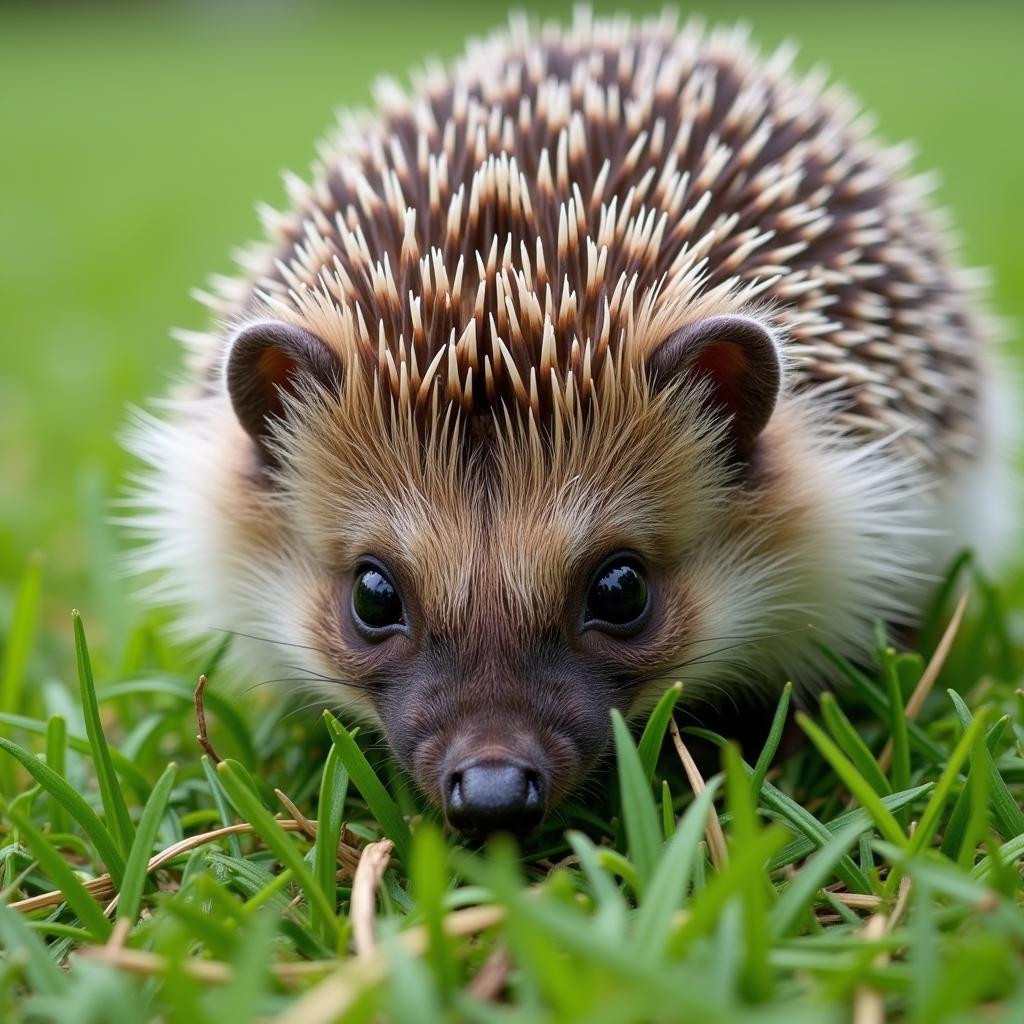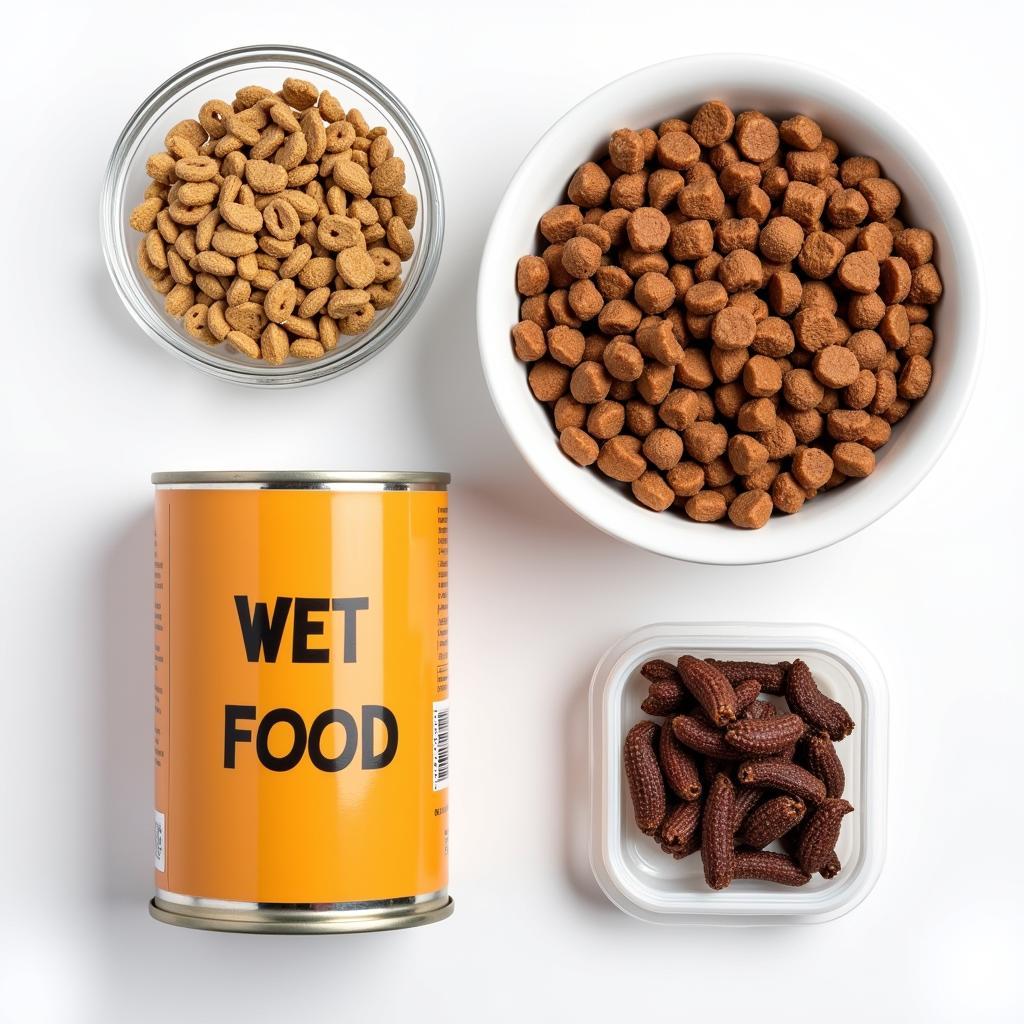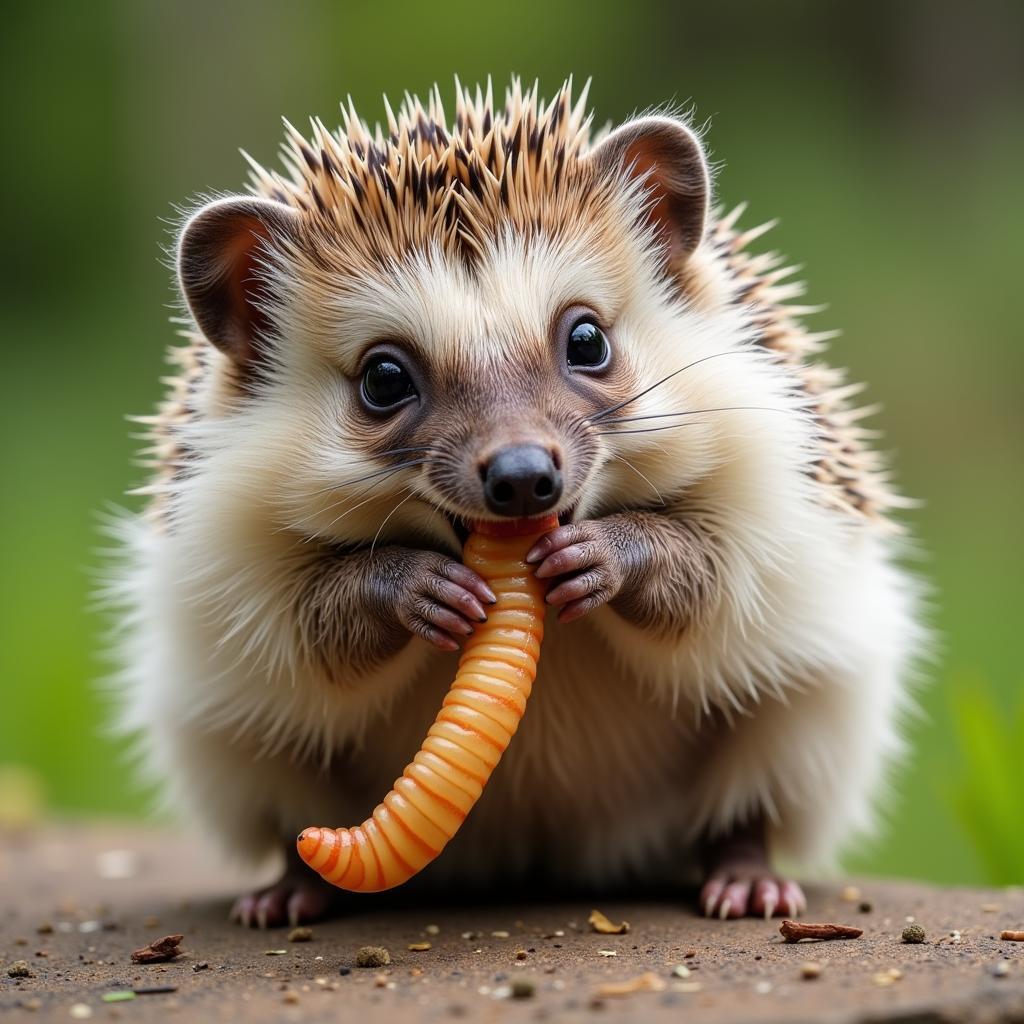Did you know those adorable, spiky creatures waddling around your garden have specific dietary needs? Understanding what constitutes proper Spikes Hedgehog Food is crucial for their health and happiness. Whether you’re a seasoned hedgehog owner or just encountered one of these prickly pals in your backyard, this comprehensive guide will equip you with the knowledge to provide optimal nutrition for your spiny friend.
Decoding the Diet: What Do Hedgehogs Eat?
Hedgehogs are natural insectivores, meaning their diet primarily consists of insects. In the wild, they’ll gladly feast on a variety of creepy crawlies, including:
- Beetles
- Caterpillars
- Earthworms
- Millipedes
- Slugs and snails
 A hedgehog foraging for insects in the grass
A hedgehog foraging for insects in the grass
This insect-rich diet provides them with the essential protein and nutrients they need to thrive. So, how can you replicate this in a domestic setting?
Best Hedgehog Food Choices for Your Prickly Pal
While you might not be keen on releasing a swarm of insects in your home, thankfully, there are many excellent commercial spikes hedgehog food options available. Look for high-quality, protein-rich hedgehog food formulated specifically for their nutritional requirements.
Here’s what to consider when choosing hedgehog food:
- Protein Powerhouse: Aim for a minimum of 30% protein content derived from high-quality sources like poultry, insects (mealworms, crickets), or fish.
- Fat in Moderation: Around 10-15% fat content is ideal for providing energy.
- Fiber Boost: Fiber is crucial for digestive health. Look for foods containing around 5-10% fiber from sources like fruits and vegetables.
- Limited Additives: Avoid foods with artificial colors, flavors, and preservatives.
 A variety of hedgehog food options: dry kibble, wet food, and live insects.
A variety of hedgehog food options: dry kibble, wet food, and live insects.
Beyond the Basics: Supplementing Your Hedgehog’s Diet
While commercial food forms the foundation of a hedgehog’s diet, providing a varied and enriching menu is key to their overall well-being.
- Insect Delights: Offer a few live or freeze-dried insects 2-3 times a week as treats. Mealworms, crickets, and earthworms are excellent options.
- Fruity Fun: Small pieces of fruits like apples (without seeds), bananas, berries, and melons can be given in moderation.
- Veggie Variety: Offer small amounts of cooked vegetables like carrots, peas, and green beans.
- Hydration Station: Always ensure access to fresh, clean water in a shallow dish.
Hedgehog Food No-Nos: What to Avoid
Just as crucial as knowing what to feed your hedgehog is understanding what to avoid. Certain foods can be toxic or harmful to their health:
- Avocado: Contains persin, which can be toxic to hedgehogs.
- Chocolate: Theobromine in chocolate is poisonous to hedgehogs.
- Dairy Products: Hedgehogs are lactose intolerant and cannot digest dairy.
- Onions and Garlic: These vegetables can cause digestive upset.
- Sugary Treats: Processed sugars offer no nutritional value and can lead to health problems.
 A hedgehog happily munching on a mealworm treat.
A hedgehog happily munching on a mealworm treat.
Feeding Frequency and Portion Control
Knowing how much and how often to feed your hedgehog is essential for maintaining a healthy weight. As a general guideline:
- Adult Hedgehogs: Offer approximately 1-2 tablespoons of hedgehog food daily, divided into two feedings (morning and evening).
- Baby Hedgehogs: May require more frequent feedings throughout the day.
It’s important to monitor your hedgehog’s weight and adjust portions accordingly.
Expert Insight:
“Just like with any pet, portion control is crucial for hedgehogs. Overfeeding can lead to obesity, which can put a strain on their little legs and overall health,” says Dr. Emily Carter, DVM, specializing in exotic animal care.
Creating a Spiky Dining Experience
Hedgehogs are crepuscular, meaning they are most active during dawn and dusk. It’s best to feed them around these times. Place their food in a shallow, heavy dish to prevent tipping.
FAQs:
Q: Can hedgehogs eat cat food?
A: While cat food may seem similar, it’s not nutritionally complete for hedgehogs. Stick to hedgehog-specific food to ensure they get the right nutrients.
Q: How can I tell if my hedgehog is overweight?
A: If you can’t feel your hedgehog’s ribs or they appear rounded and have difficulty rolling into a ball, they may be overweight. Consult your vet for guidance.
Need More Spiky Advice?
For any questions or concerns about your hedgehog’s diet or care, feel free to contact us at Phone Number: 02437655121, Email: [email protected] Or visit us at: 3PGH+8R9, ĐT70A, thôn Trung, Bắc Từ Liêm, Hà Nội, Việt Nam. Our dedicated team is available 24/7 to assist you.